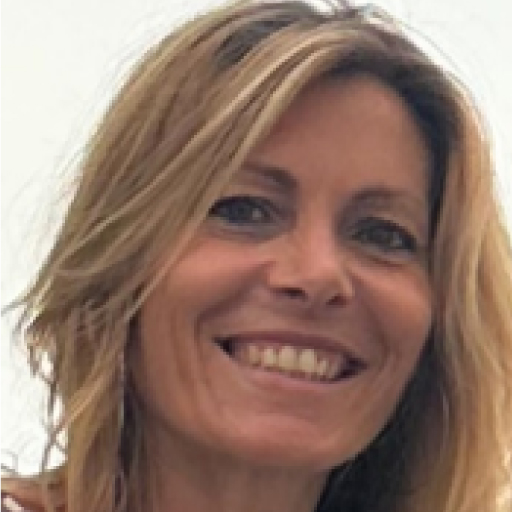de que se trata o LOST2?
LOST2 é um projeto que visa resolver o problema crescente do desaparecimento de pessoas, em especial de jovens, na Europa. Cerca de 200 000 crianças são dadas como desaparecidas, mas apenas 33% delas são encontradas.
LOST2 pretende criar um sistema europeu unificado para a investigação e localização de pessoas desaparecidas e menores, através da criação de um perfil profissional normalizado para “Peritos na Investigação de Pessoas Desaparecidas e Menores”.
O projeto visa igualmente estabelecer um nível de formação normalizado que será reconhecido em todos os países da UE.
LOST2 tem como objetivo promover a inclusão social, em especial entre os jovens, e abordar o problema crescente das pessoas e crianças desaparecidas na Europa. Com 200.000 crianças dadas como desaparecidas e apenas 33% encontradas, o LOST2 reconhece a necessidade de estabelecer um sistema europeu de investigação abrangente. Isto implica a definição de um perfil profissional básico para “Peritos na investigação de pessoas desaparecidas e menores” e a implementação de um programa de formação de alto nível que seja reconhecido em toda a UE.
LOST2 aspira
- O projeto LOST visa dar visibilidade e transparência ao perfil profissional de um Consultor em Análise de Informação e Pesquisa de Pessoas Desaparecidas, tanto a nível nacional como a nível da UE.
- Este objetivo deve ser alcançado através do reconhecimento de normas de formação e competências comuns obtidas em contextos formais, informais e não formais.
- O projeto visa analisar, partilhar, enriquecer e definir a qualificação proposta, preparando, em última análise, uma documentação coerente em conformidade com as normas europeias relativas às profissões e qualificações.
- Isto permitirá que as autoridades nacionais e locais verifiquem, validem e reconheçam a aprendizagem relacionada em conformidade com as normas de qualificação.
- O projeto está também a lançar as bases para a futura equivalência da qualificação na Europa, seguindo as normas definidas nas recentes orientações europeias.
- Por último, o projeto visa alargar as oportunidades de emprego para estes profissionais, garantindo a utilizabilidade e a transferibilidade da qualificação para todos os países da UE.
LOST2 é melhor para
Indivíduos responsáveis pelo ensino e formação de pessoas na utilização de competências técnicas, como a programação informática, a engenharia e a mecânica. Trabalham numa variedade de contextos, incluindo escolas, empresas e agências governamentais.
Organizações que prestam formação e educação a pessoas que querem aprender uma profissão ou uma competência. Oferecem uma variedade de programas, incluindo aprendizagens, estágios e formação em sala de aula.
Indivíduos e dpts. responsável pela aplicação da lei e pela proteção do público. Trabalham numa variedade de contextos, incluindo agências locais, estatais e federais.
Responsável pelo combate aos incêndios e pela prestação de serviços de emergência. Trabalham numa variedade de contextos, incluindo corpos de bombeiros, hospitais e outras agências de segurança pública.
Responsável pela recolha de informações e pela proteção da segurança nacional. Trabalham numa variedade de contextos, incluindo agências governamentais, organizações militares e empresas privadas.
Indivíduos responsáveis pela preparação e resposta a catástrofes naturais e outras emergências. Trabalham numa variedade de contextos, incluindo agências governamentais, organizações sem fins lucrativos e empresas.
Estas pessoas são contratadas por indivíduos ou organizações para investigar uma variedade de assuntos, tais como fraude, roubo e pessoas desaparecidas.
Indivíduos que utilizam as suas competências jurídicas para investigar e processar crimes. Trabalham numa variedade de contextos, incluindo escritórios de advogados, agências governamentais e organizações sem fins lucrativos.
Responsável por assegurar que a aprendizagem das pessoas é reconhecida e valorizada. Trabalham numa variedade de contextos, incluindo agências governamentais, instituições educativas e empresas.
Estes indivíduos oferecem o seu tempo como voluntários para ajudar a encontrar pessoas desaparecidas. Trabalham numa variedade de contextos, incluindo linhas directas, equipas de busca e salvamento e grupos de apoio.
Prestar apoio às famílias de pessoas desaparecidas e ajudá-las a navegar no sistema jurídico. Trabalham numa variedade de contextos, incluindo linhas directas, grupos de apoio e clínicas de assistência jurídica.
Estas organizações são responsáveis pela investigação e pela repressão dos crimes.
Muitas vezes, são os primeiros a dar pela falta de alguém. Podem desempenhar um papel fundamental na procura de uma pessoa desaparecida.
Estes indivíduos atendem chamadas de pessoas preocupadas com uma pessoa desaparecida. Prestam informações e apoio a quem telefona e ajudam-no a contactar os recursos adequados.
Estas organizações são responsáveis pela gestão do fluxo de pessoas que entram e saem de um país. Trabalham numa variedade de contextos, incluindo agências governamentais, embaixadas e consulados.
Estas organizações são responsáveis pela proteção dos direitos das crianças que não têm capacidade para cuidar de si próprias. Trabalham numa variedade de contextos, incluindo lares de grupo, famílias de acolhimento e agências de adoção.
Estas organizações trabalham para proteger os direitos das crianças e prevenir o abuso e a negligência de crianças. Trabalham numa variedade de contextos, incluindo escolas, hospitais e comunidades.
Estas organizações prestam apoio aos imigrantes e ajudam-nos a navegar no sistema jurídico. Trabalham numa variedade de contextos, incluindo clínicas de assistência jurídica, centros comunitários e agências de serviços sociais.
Estes indivíduos representam os interesses da União Europeia em questões relacionadas com as liberdades civis, a justiça e os assuntos internos. Trabalham numa variedade de contextos, incluindo o Parlamento Europeu, a Comissão Europeia e o Conselho da União Europeia.
Estes indivíduos realizam investigação sobre uma variedade de tópicos relacionados com as liberdades civis, a justiça e os assuntos internos. Trabalham numa variedade de contextos, incluindo o Parlamento Europeu, a Comissão Europeia e o Conselho da União Europeia.
É responsável pelo desenvolvimento e aplicação de políticas relacionadas com a justiça e os direitos das pessoas.















